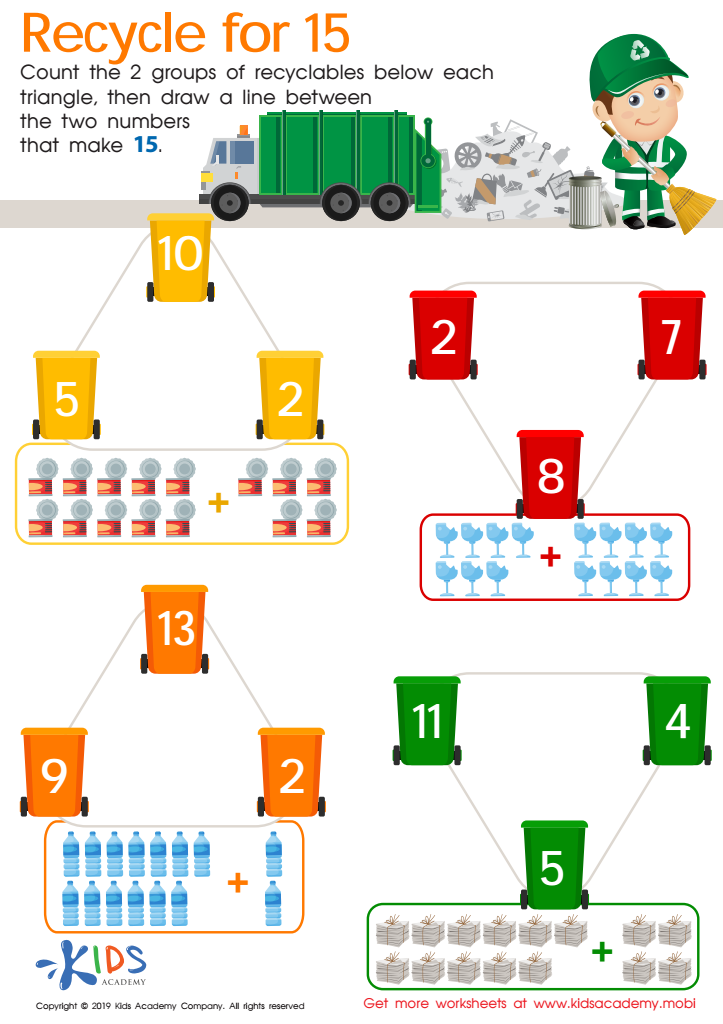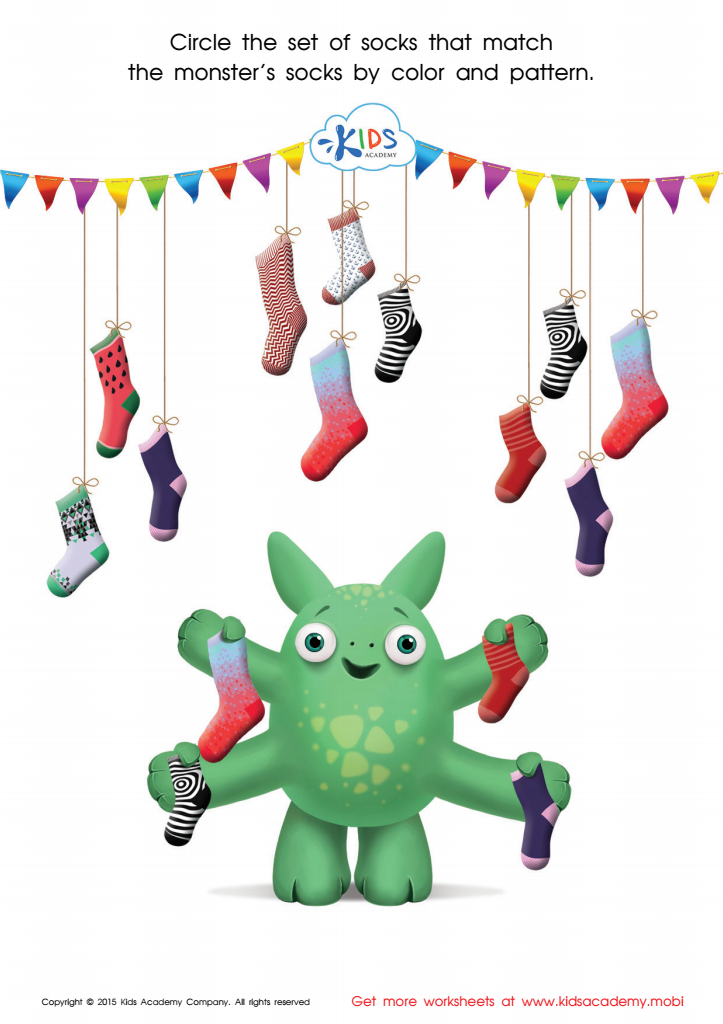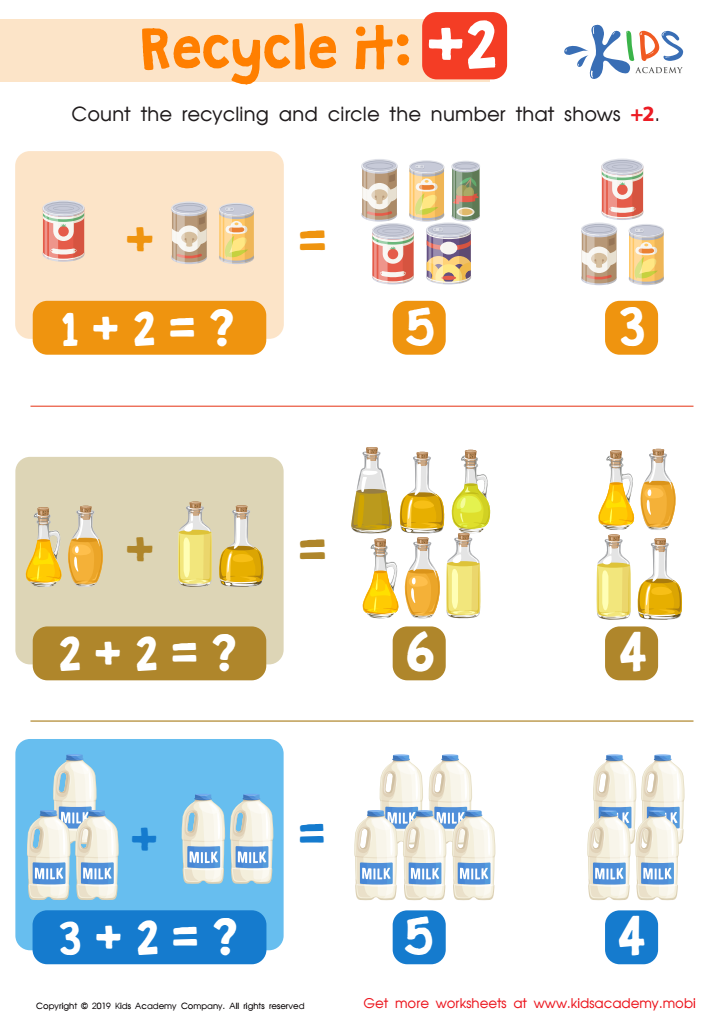Sorting skills Addition & Subtraction Worksheets for Ages 3-7
5 filtered results
-
From - To
Enhance your child's sorting skills with our engaging Addition & Subtraction Worksheets designed for ages 3-7. These interactive resources blend arithmetic with fun sorting activities, helping young learners improve their mathematical understanding while developing essential cognitive skills. Our worksheets are colorful, age-appropriate, and cater to various learning styles, ensuring that children grasp the concepts of addition and subtraction. By sorting numbers and objects, kids will not only reinforce their math skills but also promote critical thinking and problem-solving abilities. Perfect for home or classroom use, our worksheets provide an enjoyable way to learn foundational math with a focus on sorting skills!


Recycle for 15 Worksheet


Sort the Monster's Socks Worksheet


Recycle It: +2 Worksheet
Sorting skills and the foundational concepts of addition and subtraction are crucial for early childhood development, particularly for children aged 3-7. Parents and teachers should care about these skills for several reasons.
Firstly, sorting skills help children develop cognitive abilities such as classification, pattern recognition, and organization. These foundational skills enhance critical thinking and problem-solving, ultimately supporting more advanced learning in mathematics and other subjects. By developing the ability to sort objects by size, color, or shape, children become better equipped to understand abstract mathematical concepts later on.
Moreover, addition and subtraction are core arithmetic skills that serve as the building blocks for all future math understanding. By introducing these concepts early, children are more likely to grasp them intuitively, fostering a positive relationship with math throughout their education. When parents and teachers engage children in playful activities that incorporate sorting, addition, and subtraction, they create a rich, interactive learning environment.
Lastly, nurturing these skills at an early age can boost a child's confidence and self-esteem as they learn to tackle mathematical problems. This solid foundation will not only contribute to academic success but also prepare children for everyday decision-making, financial literacy, and logical reasoning as they grow.
 Assign to My Students
Assign to My Students


















